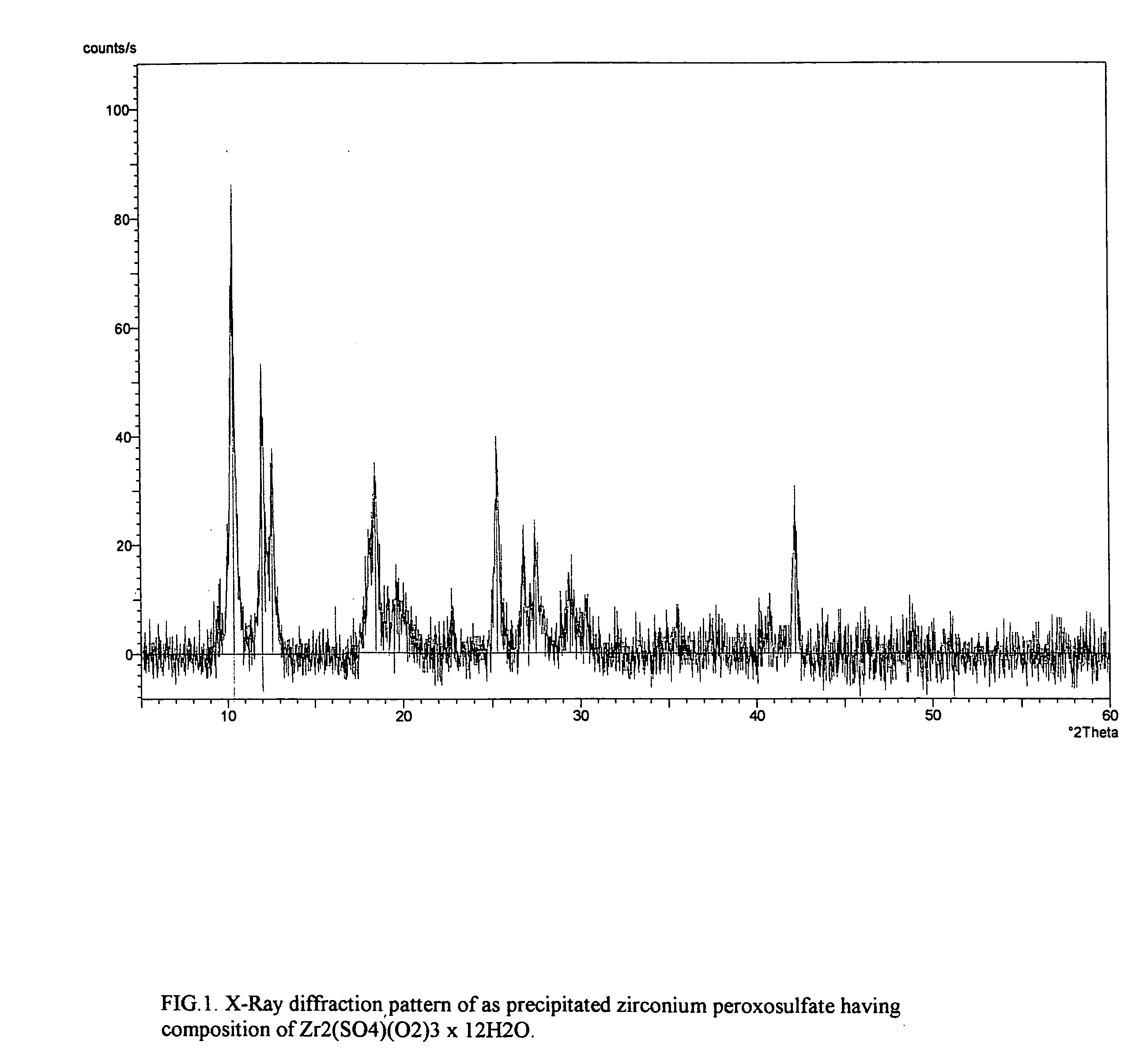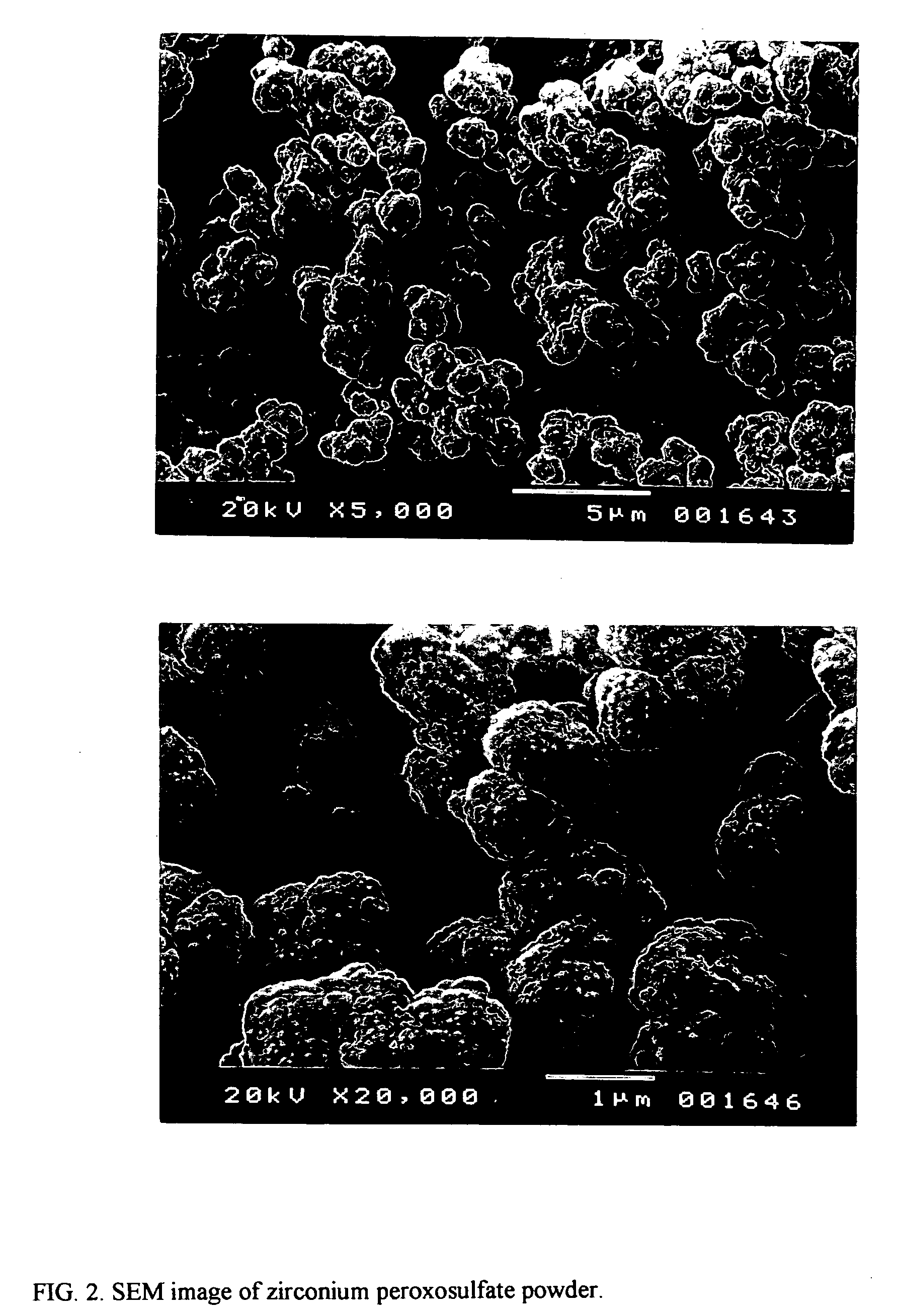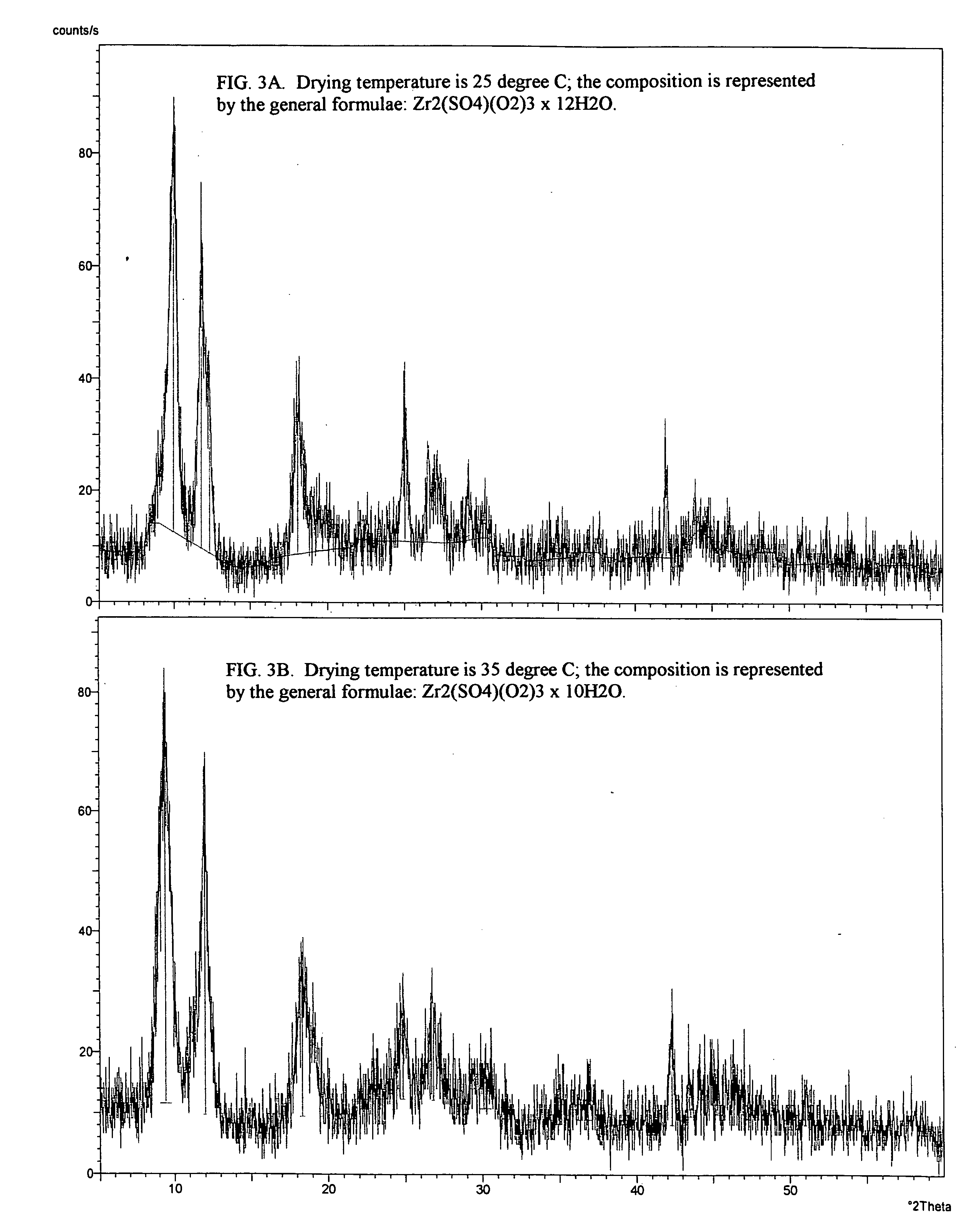Process for the isolation and purification of zirconium peroxosulfate and uses thereof
a technology of zirconium peroxosulfate and purification process, which is applied in the field of isolating and purifying zirconium species, can solve the problems of high temperature, low temperature, and inability to form solid crusts
- Summary
- Abstract
- Description
- Claims
- Application Information
AI Technical Summary
Benefits of technology
Problems solved by technology
Method used
Image
Examples
example 1
[0094] Reagent grade zirconium sulfate, Zr(SO4)2×4H2O in the amount of 716.0 g (which is by content equivalent to 2.02 mol of zirconium oxide) was dissolved with stirring in 800 ml of water; the resulting solution was filtered to provide a clear solution. The aqueous solution of zirconium sulfate was then mixed with 840 ml of an aqueous hydrogen peroxide solution having a concentration of 9.8 mol / liter H2O2 (30 wt % H2O2). The resultant acidic peroxide solution of zirconium had a concentration of zirconium of 1.1 Zr g-atom / liter, a sulfate / zirconium molar ratio of 2.0, a hydrogen peroxide / zirconium molar ratio of 4.09, and an acidity of about 4N total acid per g-atom zirconium.
[0095] The solution was maintained at ambient temperature of 25° C. and stirred. After about 15 minutes, the reaction started and the clear solution turned opaque due to formation of colloidal nuclei followed by precipitation of secondary particles. In about 4 hours, the resultant white precipitate was filter...
example 2
[0098] Reagent grade zirconium sulfate, Zr(SO4)2×4H2O in the amount of 716.0 g, which is by content equivalent to 2.02 mol of zirconium oxide, was dissolved by stirring in a mixture of 800 ml of deionized water and 1050 ml of an aqueous hydrogen peroxide solution having a concentration of 9.8 mol / liter H2O2 (30 weight % H2O2). The resultant acidic peroxide solution had zirconium concentration of 0.98 g-atom / liter, sulfate / zirconium molar ratio of 2:1, hydrogen peroxide / zirconium molar ratio of 5.09:1, and an acidity of about 4N total acid per g-atom zirconium.
[0099] The solution was filtered. The clear solution was maintained at an ambient temperature of about 25° C. with stirring. After about 5 minutes, the reaction started and the clear solution turned opaque due to formation of colloidal particles. After about 2 hours, the resultant white precipitate was filtered off and the obtained filter cake was washed with water until no more sulfate ions were detected in the wash water by ...
example 3
[0102] Zirconium basic carbonate in the amount of 600.0 g, equivalent by content to 1.95 mol of zirconium oxide, was dissolved in 725 ml of sulfuric acid having a concentration of 6.62 mol / liter (˜47.4 weight % H2SO4). The resultant zirconium-containing sulfate solution, which measured 900 ml, was mixed with 1,200 ml of a hydrogen peroxide aqueous solution having a concentration of 9.8 mol / liter H2O2 (30 weight % H2O2).
[0103] The prepared acidic peroxide solution had a concentration of zirconium of 0.93 g-atom Zr / liter, a sulfate / zirconium molar ratio of 2.46:1, a hydrogen peroxide / zirconium molar ratio of 6.03:1, and an acidity of about 4.9 N total acid per g-atom zirconium.
[0104] The solution was stirred and maintained at an ambient temperature of about 20° C. In about 45 minutes, the reaction started and the clear solution turned opaque due to formation of colloidal particles of solids. After about 6 hours, the resultant white precipitate was filtered off and the filter cake pr...
PUM
| Property | Measurement | Unit |
|---|---|---|
| temperature | aaaaa | aaaaa |
| temperature | aaaaa | aaaaa |
| molar ratio | aaaaa | aaaaa |
Abstract
Description
Claims
Application Information
 Login to View More
Login to View More - R&D
- Intellectual Property
- Life Sciences
- Materials
- Tech Scout
- Unparalleled Data Quality
- Higher Quality Content
- 60% Fewer Hallucinations
Browse by: Latest US Patents, China's latest patents, Technical Efficacy Thesaurus, Application Domain, Technology Topic, Popular Technical Reports.
© 2025 PatSnap. All rights reserved.Legal|Privacy policy|Modern Slavery Act Transparency Statement|Sitemap|About US| Contact US: help@patsnap.com



